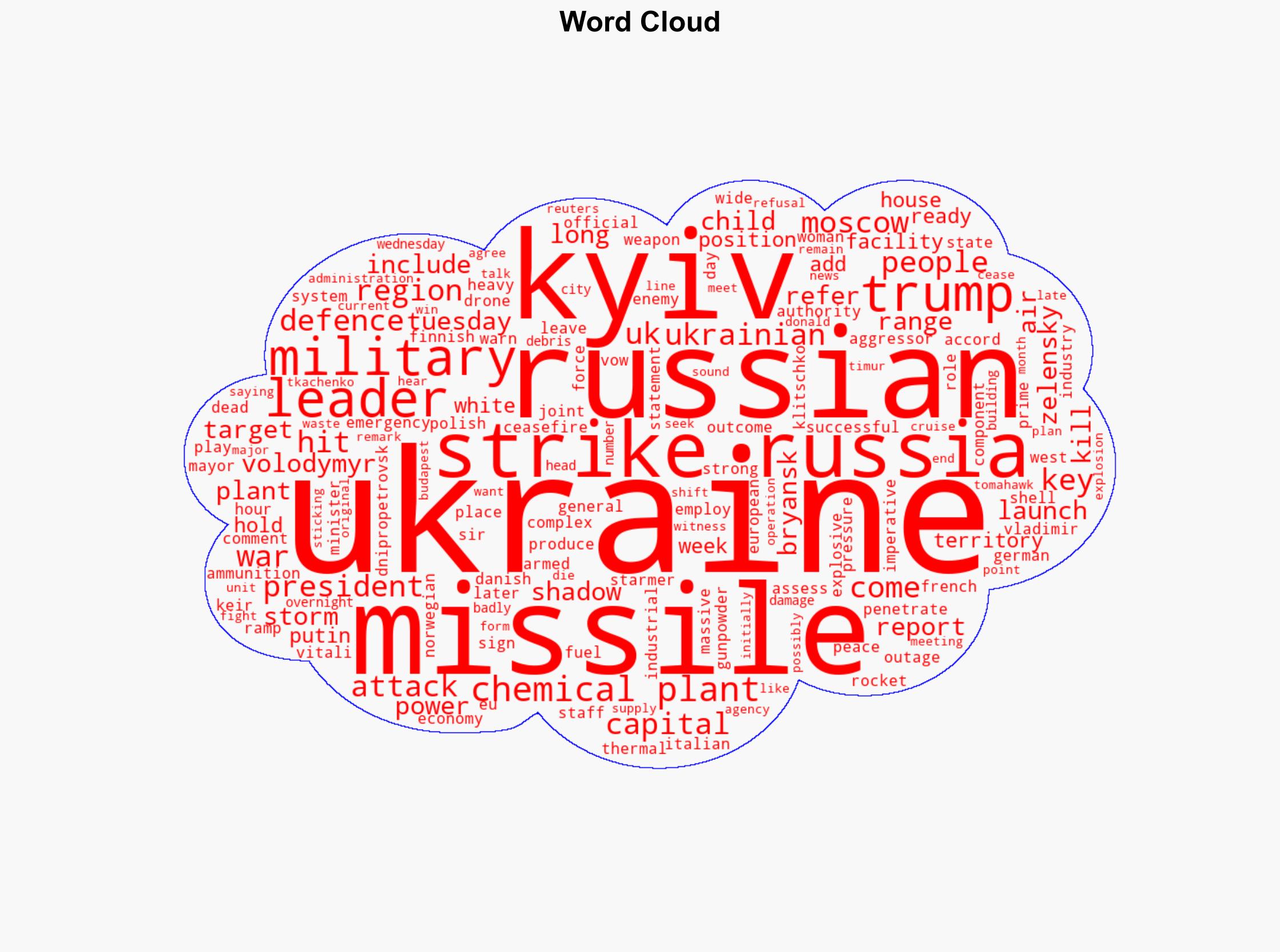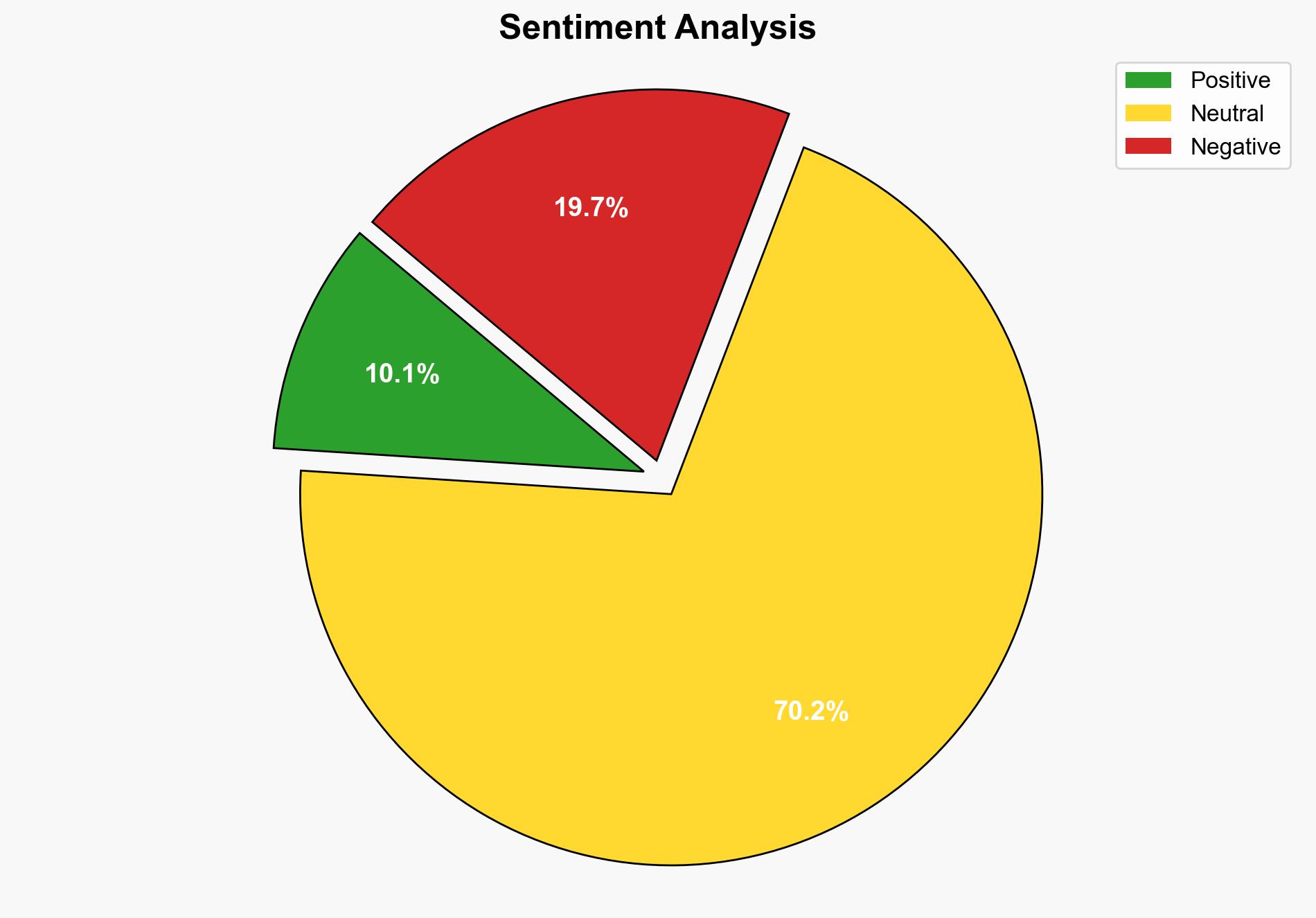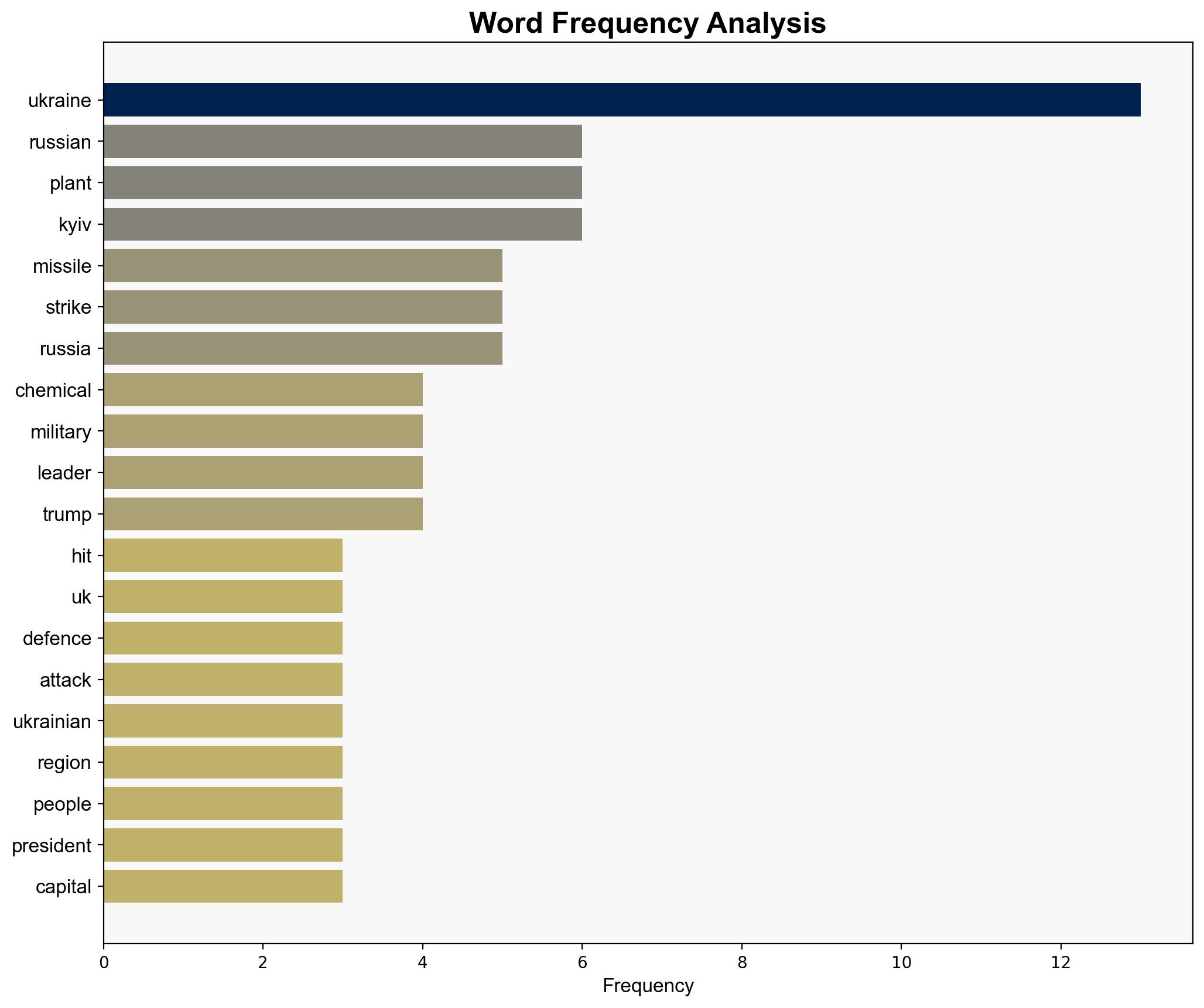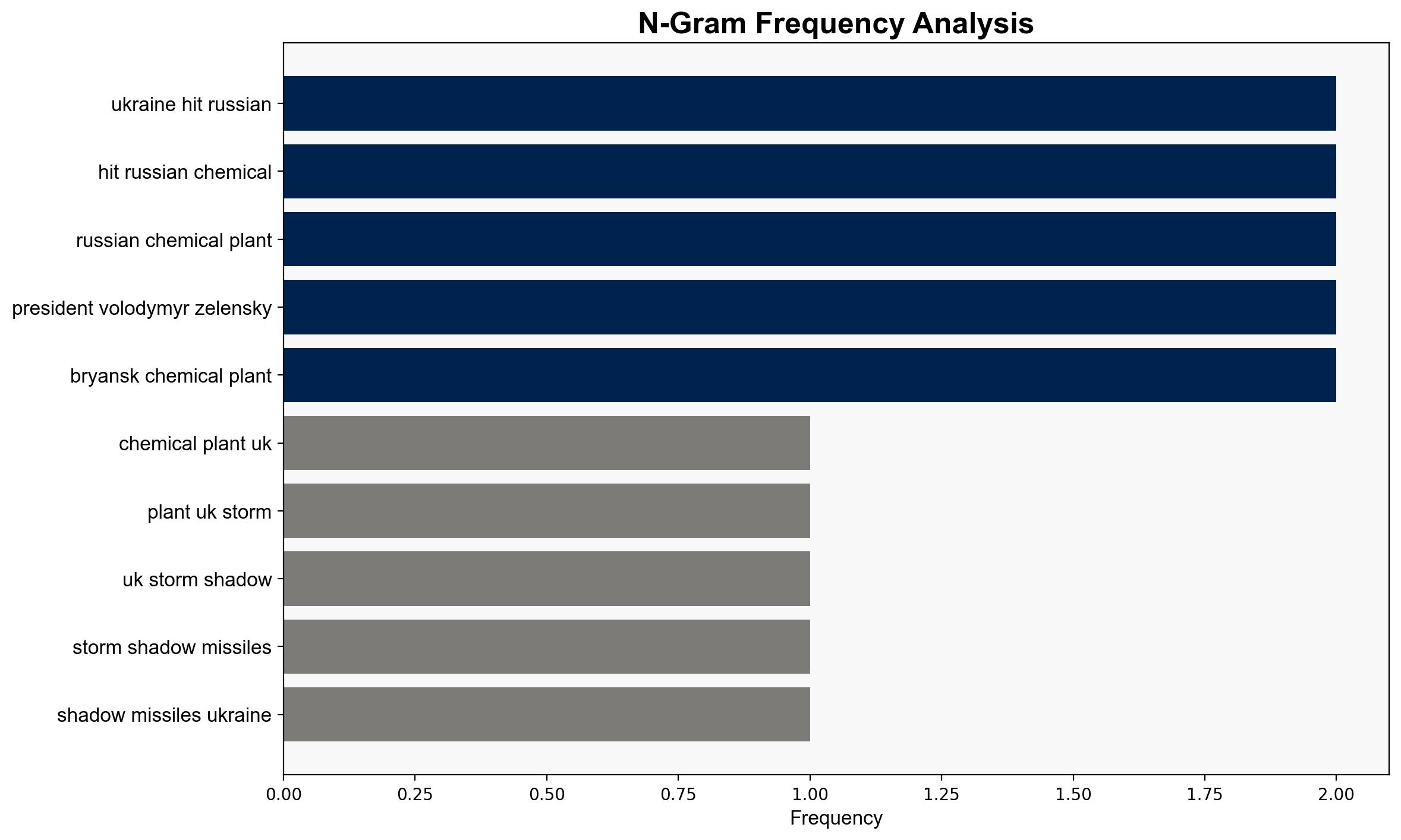Ukraine hits Russian chemical plant with UK-made Storm Shadow missiles – BBC News
Published on: 2025-10-22
Intelligence Report: Ukraine hits Russian chemical plant with UK-made Storm Shadow missiles – BBC News
1. BLUF (Bottom Line Up Front)
The most supported hypothesis is that Ukraine’s strike on the Russian chemical plant using UK-made Storm Shadow missiles is a strategic effort to degrade Russia’s military-industrial capabilities, with a medium to high confidence level. This action could escalate tensions, prompting a need for diplomatic engagement to prevent further military escalation. Recommended action includes bolstering diplomatic channels to manage potential retaliatory measures from Russia.
2. Competing Hypotheses
1. **Hypothesis A**: Ukraine’s strike on the Bryansk chemical plant is a calculated military strategy to weaken Russia’s military supply chain, specifically targeting facilities crucial for ammunition and missile production.
2. **Hypothesis B**: The strike serves as a political signal to both Russia and Western allies, demonstrating Ukraine’s capability and resolve, potentially aimed at influencing diplomatic negotiations and securing more military aid.
Using ACH 2.0, Hypothesis A is better supported by the intelligence, given the plant’s role in producing military components and the context of ongoing military operations. Hypothesis B, while plausible, lacks direct evidence linking the strike to diplomatic signaling beyond the general context of international support.
3. Key Assumptions and Red Flags
– **Assumptions**: It is assumed that the Bryansk plant is operationally significant to Russia’s military efforts. Another assumption is that Ukraine’s military actions are primarily driven by strategic military objectives rather than political signaling.
– **Red Flags**: The lack of immediate Russian commentary on the strike could indicate strategic deception or a delay in response strategy. Additionally, the potential overestimation of the strike’s impact on Russia’s military capabilities should be considered.
4. Implications and Strategic Risks
The strike may lead to a series of retaliatory actions by Russia, potentially escalating military engagements in the region. Economically, further attacks on infrastructure could disrupt regional stability and impact energy supplies. Geopolitically, this could strain Ukraine’s relations with Western allies if perceived as escalating the conflict unnecessarily. Cyber threats may also increase as part of Russia’s asymmetric response.
5. Recommendations and Outlook
- Enhance diplomatic efforts to de-escalate tensions, potentially involving neutral parties to mediate.
- Prepare for potential retaliatory strikes by bolstering defensive capabilities in critical infrastructure areas.
- Scenario Projections:
- Best Case: Successful diplomatic engagement leads to a de-escalation of military actions.
- Worst Case: Escalation into broader military conflict involving additional regional actors.
- Most Likely: Continued tit-for-tat strikes with limited diplomatic progress.
6. Key Individuals and Entities
– Volodymyr Zelensky
– Vladimir Putin
– Keir Starmer
– Vitali Klitschko
– Timur Tkachenko
7. Thematic Tags
national security threats, military strategy, geopolitical tensions, regional stability





